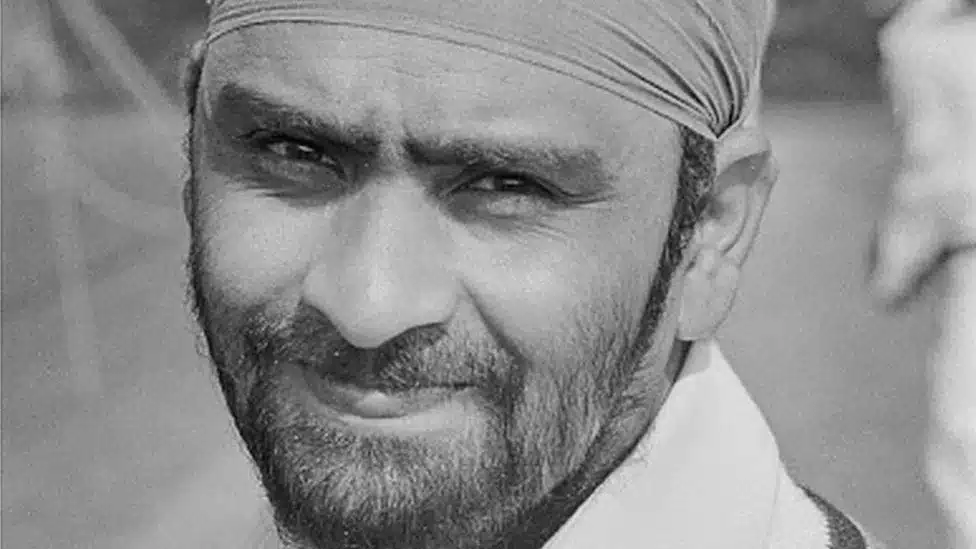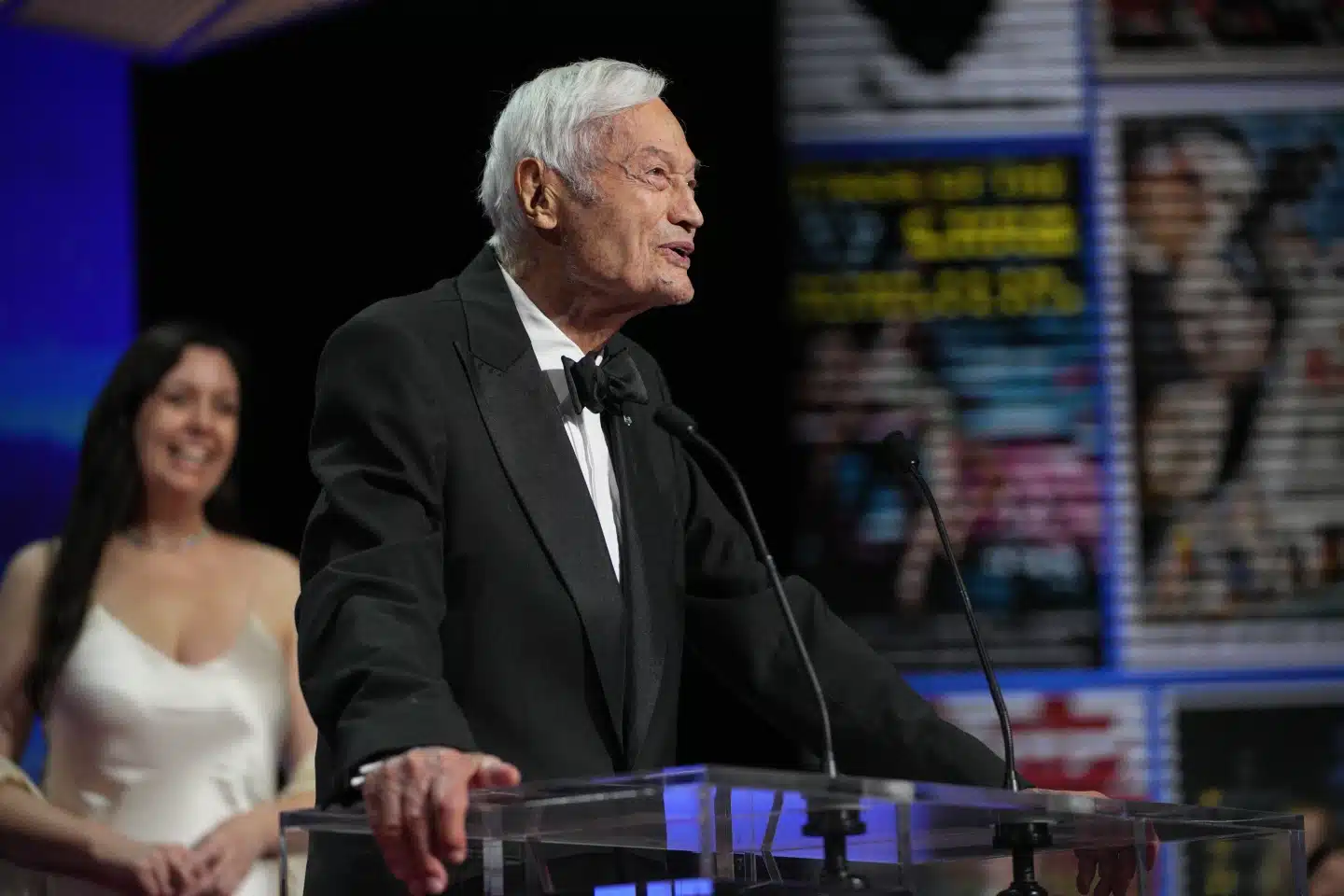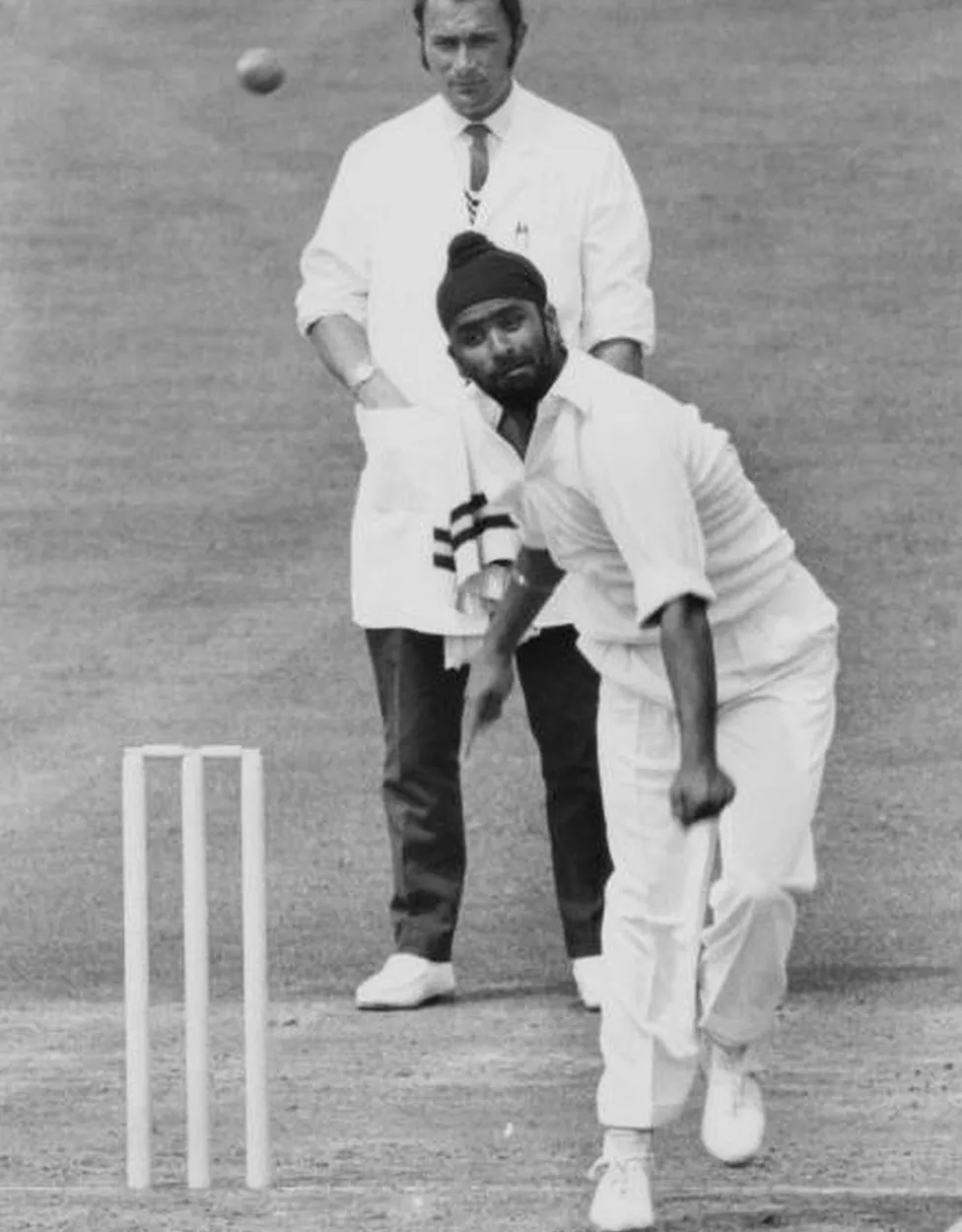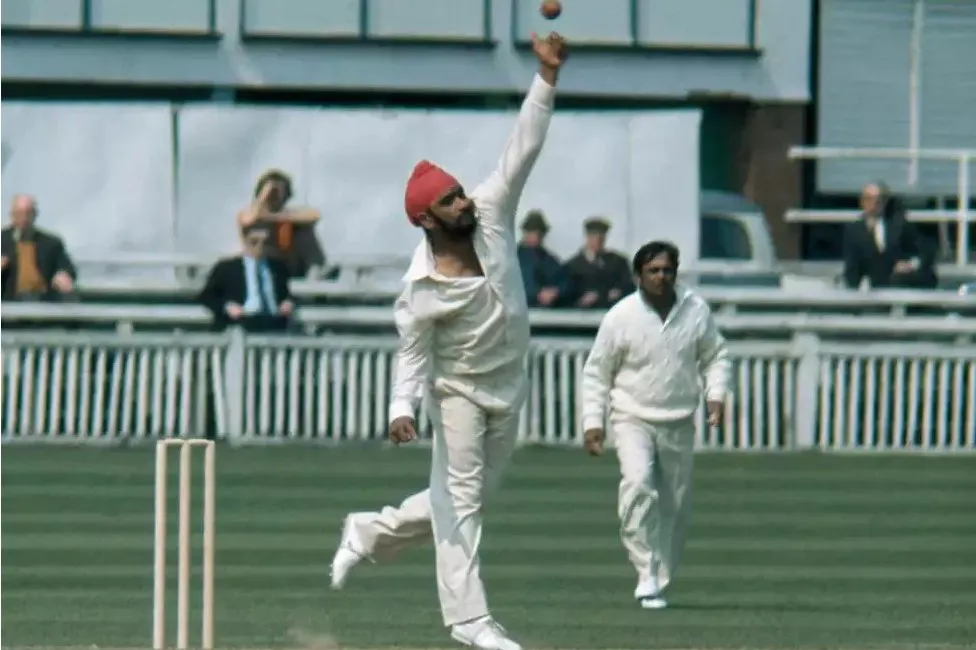Celebrity
Bishan Singh Bedi: Indian Cricket Legend Dies Aged 77

After a protracted illness, Indian cricket legend Bishan Singh Bedi passed away at the age of 77.
Recently, he had undergone a number of surgical procedures while battling age-related ailments.
Considered one of the greatest spin spinners in history, Bedi captained India in 22 of his 67 Tests and amassed 266 wickets.
His final Test was against England at The Oval in 1979. He debuted against the West Indies in 1966.
Bedi also represented Northamptonshire in English county cricket and concluded his tenure with 1,560 first-class wickets, the most of any Indian bowler.
During the 1960s and 1970s, Bedi was an indispensable member of a renowned quartet of India’s most formidable spin bowlers: Bhagwat Chandrasekhar, Erapalli Prasanna, and Srinivas Venkataraghavan. Bedi was selected by readers in 2021 to be included in BBC Sport’s definitive India Test XI.
Born in Amritsar, Punjab State, India, Bedi started his cricket career in elementary school. He became the 113th cricketer to represent India in Tests upon reaching the age of twenty.
During his twelve-year career, his finest bowling performance occurred in 1969 in Kolkata (then known as Calcutta) against Australia in a Test match that India lost. He took seven wickets for 98 runs.
Bedi, adorned with his distinctive pink or vibrant blue turban, was the epitome of spin bowling. Bowling came easily to him due to his relaxed approach and effortless motion. The cricket writer H Natarajan characterised the left arm spinner as “silent, deceptive, and lethal; an expert at manipulating flight, pace, loop, and spin without any observable alteration in technique.”
“Bedi launched the ball higher than any bowler in international cricket; if he managed to trouble quick-footed batsmen, it was only because his command was so comprehensive that he caused the ball to descend considerably more quickly than it rose,” wrote Indian cricket historian and author A Corner of a Foreign Field Ramachandra Guha.
Former India wicketkeeper Syed Kirmani, who captained the country in 88 Tests, once remarked that Bedi could “bowl six different deliveries in an over” due to his remarkable variation.
Sir Garry Sobers, one of the finest all-rounders in cricket history and a legend of the West Indies, remarked that Bedi “delightfully removed the burden from the ball.” Mike Brearley, one of England’s best captains, praised his bowling as “beautiful.”
And Sir Donald Bradman, widely regarded as the greatest batter in the history of the sport, said of Bedi, “A veritable study for the connoisseur and one of the finest bowlers of his genre.”
Bedi was also an uncommonly flamboyant cricketer who frequently found himself in controversy.
In 1976, at 97-5, he declared India’s second innings against Clive Lloyd’s West Indies in Kingston, Jamaica, as a protest against the hosts’ intimidating bowling.
West Indian quick bowlers dismissed three India batsmen injured in the match, and Bedi stated that it was not a declaration because there were no fit players to bat. A decade later, West Indies emerged victorious by ten wickets.
In 1977, while touring India, he accused England left-arm fast bowler John Lever of using Vaseline to propel the ball. He claimed partisan umpiring and forfeited a match against Pakistan the following year.
He threatened to send the India team into the sea in 1990, as national coach, following their loss to Australia. In 2002, he accused Muttiah Muralitharan, the spin legend of Sri Lanka, of throwing in a startling attack.
“Should Murali fail to dismiss the ball, then demonstrate the art of bowling,” Bedi said in a Wisden Cricket Asia interview.
He declined Kerry Packer’s lucrative contract to participate in the World Series Cricket, an Australian rebel tournament, in 1978. He subsequently recalled that Packer’s agent had made three substantial offers to him.
Years later, he criticised Indian Premier League player auctions, stating that he “merely did not like players being treated like horses being sold for the highest bid.”
Bedi never held back when it came to criticising cricket board officials at home.
He requested that his name be removed from a stand at the principal cricket stadium in Delhi as a protest against the installation of a statue depicting a deceased politician affiliated with the ruling BJP. Once, without authorization, he appeared on a television programme and demanded increased match fees for his team. “If speaking one’s mind is a crime, then I am guilty several times over,” he stated previously.
Bedi was an exceedingly sociable individual with a flamboyant disposition. His daughter recollected a household characterised by an abundance of food, alcohol, and uncontrollable hilarity. Dog-obsessed, he carried home numerous breeds from kennel clubs during his travels in the United Kingdom.
He was colloquially referred to in India as the “sardar of spin” and possessed a contagious sense of humour.
He once adopted two canines named Charles and Diana from a facility in England before transporting them to India. An official at the London airport questioned him, “Are you removing the mickey from our royalty?” Bedi, impassive, responded, “No! “I am departing with the royal family.”
The wisecrack perfectly encapsulated Bedi in many ways: he was an irreverent person who was, in a sense, a dissident. Moreover, without a doubt, one of the all-time finest cricketers.
SOURCE – (BBC)
Celebrity
Actor Steve Buscemi Is OK After Being Punched In The Face In New York City

NEW YORK — Actor Steve Buscemi is well after being hit in the face by a man on a New York City street, his publicist confirmed Sunday.
The 66-year-old star of “Fargo” and “Boardwalk Empire” was beaten late Wednesday morning in Manhattan and transported to a local hospital for bruises, swelling, and bleeding in his left eye.

Deadline – VOR News Image
Actor Steve Buscemi Is OK After Being Punched In The Face In New York City
“Steve Buscemi was assaulted in Mid-Town Manhattan, another victim of a random act of violence in the city,” according to a statement from his publicist on Sunday. “He is ok and appreciates everyone’s well wishes.”
The New York Post was first to report the assault.

salon – VOR News Image
Actor Steve Buscemi Is OK After Being Punched In The Face In New York City
The New York Police Department issued a nameless statement regarding the assault on Wednesday. Steve’s representative confirmed Sunday that the anonymous assault victim in the police report was the actor.
According to the police department, no arrests have been made, and the investigation is ongoing.

The Guardian – VOR News Image
Actor Steve Buscemi Is OK After Being Punched In The Face In New York City
Michael Stuhlbarg, Buscemi’s “Boardwalk Empire” co-star, was hit in the back of the neck by a rock while walking in Manhattan’s Central Park on March 31. Stuhlbarg chased his attacker, who was apprehended outside the park.
SOURCE – (AP)
Celebrity
Roger Corman, Hollywood Mentor And ‘King Of The Bs,’ Dies At 98

Los Angeles — Roger Corman, the “King of the Bs” who helped produce low-budget classics like “Little Shop of Horrors” and “Attack of the Crab Monsters” and handed many of Hollywood’s most famous actors and directors their first breaks, has died. He was 98.
Corman died on Thursday at his home in Santa Monica, California, according to a statement issued Saturday by his wife and children.
“He was generous, open-hearted, and kind to all those who knew him,” the statement stated. “When asked how he would like to be remembered, he said, ‘I was a filmmaker, just that.'”
Starting in 1955, Corman produced and directed hundreds of B-movies, including “Black Scorpion,” “Bucket of Blood,” and “Bloody Mama.” He was a fantastic talent judge, hiring promising directors such as Francis Ford Coppola, Ron Howard, James Cameron, and Martin Scorsese. Corman was presented with an honorary Academy Award in 2009.
“There are many constraints connected with working on a low budget, but at the same time there are certain opportunities,” Corman stated in a 2007 documentary about Val Lewton, the 1940s filmmaker of “Cat People” and other underground masterpieces.
AP – VOR News Image
Roger Corman, Hollywood Mentor And ‘King Of The Bs,’ Dies At 98
“You may gamble a little more. You are welcome to experiment. “You must find a more creative way to solve a problem or present a concept,” he explained.
Corman’s films may be traced back to the 1970s when Hollywood peaked.
Jack Nicholson made his cinematic debut as the titular character in “The Cry Baby Killer,” a 1958 Corman quickie, and continued to work with the company on biker, horror, and action films, writing and producing others. Other performers who began their careers with Corman films included Robert De Niro, Bruce Dern, and Ellen Burstyn.
Peter Fonda’s participation in “The Wild Angels” foreshadowed his own iconic biker film, “Easy Rider,” which co-starred Nicholson and another Corman alum, Dennis Hopper. “Boxcar Bertha,” starring Barbara Hershey and David Carradine, was one of Scorsese’s early films.
Corman’s B-movie directors were given small budgets and frequently told to complete their films in as little as five days. When Howard, who went on to win an Oscar for best director for “A Beautiful Mind,” requested an extra half-day to reshoot a sequence for “Grand Theft Auto” in 1977, Corman informed him, “Ron, you can come back if you want, but nobody else will be there.”
“Roger Corman was my first boss, my lifelong mentor, and my inspiration. Roger was one of the greatest innovators in film history,” Gale Ann Hurd, whose famous producing accomplishments include the “Terminator” film franchise, “The Abyss,” and “The Walking Dead” television series, said in a post on X, formerly Twitter.
Initially, only drive-ins and specialty theaters would show Corman films, but national chains gave in as youngsters began to flock. Corman’s films were unusually candid about sex and drugs at the time, such as his 1967 movie “The Trip,” an explicit story about LSD written by Nicholson and starring Fonda and Hopper.
Meanwhile, he found a profitable sideline releasing renowned foreign films in the United States, including Ingmar Bergman’s “Cries and Whispers,” Federico Fellini’s “Amarcord,” and Volker Schlondorff’s “The Tin Drum.” The latter two received Oscars for Best Foreign Language Film.
Corman began his career as a messenger boy for Twentieth Century Fox before becoming a plot analyst. After briefly leaving the company to study English literature at Oxford University, he returned to Hollywood and began his career as a film producer and director.
Despite his frugal tendencies, Corman maintained positive relationships with his directors, saying he never dismissed one because “I wouldn’t want to inflict that humiliation.”
AP – VOR Neews Image
Roger Corman, Hollywood Mentor And ‘King Of The Bs,’ Dies At 98
Years later, some of his old underlings repaid his goodwill. Coppola cast him in “The Godfather, Part II,” Jonathan Demme put him in “The Silence of the Lambs” and “Philadelphia,” and Howard cast him in “Apollo 13.”
Most of Corman’s films were swiftly forgotten by all except the most devoted fans. A rare exception was 1960’s Little Shop of Horrors, which starred a violent plant that ate humans and starred Nicholson in a minor but notable role as a pain-loving dental patient. It sparked a long-running theater musical and a 1986 musical adaptation starring Steve Martin, Bill Murray, and John Candy.
In 1963, Corman began a film series based on Edgar Allan Poe’s works. The most prominent was “The Raven,” which starred Nicholson with renowned horror actors Boris Karloff, Peter Lorre, and Basil Rathbone. Corman directed the horror spoof on a rare three-week timetable, and it received positive reviews, which was unusual for his films. The Library of Congress determined that another Poe adaption, “House of Usher,” was worthy of preservation.
“It was a privilege to know him. He was an excellent friend. “He shaped my childhood with science fiction movies and Edgar Allen Poe epics,” John Carpenter, director of “Halloween,” “The Thing,” and other great horror and action flicks, told X. “I’ll miss you, Roger.”
Near the end of his life, Karloff appeared in another Corman-backed film, the 1968 thriller “Targets,” which marked Peter Bogdanovich’s directorial debut.
Corman’s success led to bids from major studios, and he directed “The St. Valentine’s Day Massacre” and “Von Richthofen and Brown” on conventional budgets. Both were disappointments, and he attributed their failure to front-office influence.
AP – VOR News Image
Roger Corman, Hollywood Mentor And ‘King Of The Bs,’ Dies At 98
Roger William Corman was born in Detroit and raised in Beverly Hills, but “not in the affluent section,” as he once stated. He graduated from Stanford University with an engineering degree and moved to Hollywood after serving in the Navy for three years.
Following his time at Oxford, he worked as a television stagehand and literary agent before discovering his life’s profession.
In 1964, he married Julie Halloran, a UCLA graduate and producer.
Catherine, Roger, Brian, and Mary are the four children he left behind along with his wife, Julie.
SOURCE – (AP)
Entertainment
Sean ‘Diddy’ Combs Asks Judge To Dismiss ‘False’ Claim That He, Others Raped 17-Year-Old Girl

Sean “Diddy” Combs asked a federal judge on Friday to dismiss a lawsuit accusing him and two co-defendants of raping a 17-year-old girl at a New York recording studio in 2003, calling it a “false and hideous claim” filed too late under the law.
The legal action is the latest counterattack from the 54-year-old hip-hop entrepreneur and his legal team following many similar cases and a related criminal sex-trafficking investigation.
“Mr. Combs and his companies categorically deny Plaintiff’s decades-old tale against them, which has caused incalculable damage to their reputations and business standing before any evidence has been presented,” the complaint said, naming Combs-owned corporations as defendants. “Plaintiff cannot allege what day or time of year the alleged incident occurred, but miraculously remembers other salacious details, despite her alleged incapacitated condition.”
AP – VOR News Image
Sean ‘Diddy’ Combs Asks Judge To Dismiss ‘False’ Claim That He, Others Raped 17-Year-Old Girl
The case was launched in December and amended in March by a lady who now lives in Canada but whose name was not revealed in the court filing. She claimed she was in 11th grade at a high school in a Detroit suburb in 2003 when Harve Pierre, then-president of Combs’ Bad Boy Entertainment record label, flew her to New York on a private jet and took her to a recording studio, where she was given drugs and alcohol until she was unable to consent to sexual activity. Then, according to the lawsuit, Pierre, Combs, and an unknown male raped her one after the other.
The lawsuit contained images of the woman sitting on Combs’ lap, which she claimed were shot on the night in question.
The defense brief requests that the action be “dismissed now, with prejudice”—which means it cannot be refiled—”to protect the Combs Defendants from further reputational injury and before more party and judicial resources are squandered.”
Michael J. Willemin, one of the plaintiff’s attorneys, stated in a statement in reaction to the filing: “At this point, no one should take anything ‘Diddy’ or his lawyers say seriously. Today’s motion is Combs’ desperate attempt to dodge accountability for Ms. Doe’s allegations of gang rape and sexual abuse. “It will not work.”
The arguments are procedural rather than factual at this early stage of the action.

Page 6 – VOR News Image
Sean ‘Diddy’ Combs Asks Judge To Dismiss ‘False’ Claim That He, Others Raped 17-Year-Old Girl
Some of the lawsuits filed against Combs involve decades-old allegations, and they are among the more than 3,700 legal claims filed under New York’s Adult Survivors Act, which temporarily suspends certain legal deadlines to give sexual assault victims one last chance to sue for abuse that occurred years or even decades ago.
The new deadlines imposed by that statute have expired, but the suit against which Combs filed the petition on Friday was filed under a separate law, New York City’s Victims of Gender-Motivated Violence Protection statute. That local legislation also allows accusers to file civil lawsuits alleging sexual assault after the statute of limitations has expired.
However, Combs’ motion claims that the action was filed too late since the city law is preempted by state law, which requires the lawsuit to be submitted by August 2021 to be timely.
“New York State law trumps New York City law, without exception,” the lawsuit states.
The updated version of the complaint filed in March attempted to resolve some of these flaws, but Combs’ lawyers claim it did not go far enough.
The judge has ordered that if the action proceeds following this challenge, the woman must give her name.
The Associated Press does not normally name anyone who claims to have been sexually abused unless they come forward publicly, as several of Combs’ accusers have.
Friday’s defense filing also faults the suit for containing “a bolded, legally irrelevant ‘trigger warning’ calculated to focus attention on its salacious and depraved allegations.”
The singer Cassie, who was once Combs’ protege and lover, filed a lawsuit in November alleging beatings, rape, and other forms of abuse from 2005 to 2018. The complaint, submitted by the same attorneys who brought the challenged suit on Friday, was settled the following day. Combs rejected the charges through his lawyer before the settlement.

VOR News Image
Sean ‘Diddy’ Combs Asks Judge To Dismiss ‘False’ Claim That He, Others Raped 17-Year-Old Girl
Combs faced further lawsuits in the months that followed. Then, on March 25, Homeland Security Investigations served search warrants on his Los Angeles and Miami houses as part of a sex trafficking probe. His lawyer described it as “a gross use of military-level force.” The investigation is continuing. Combs hasn’t been charged.
Last month, Combs moved to dismiss a lawsuit filed by Joi Dickerson, who said she was a 19-year-old college student when Combs drugged and sexually abused her.
SOURCE – (AP)
-
Sports5 months ago
Saints’ Aggressive Play-Calling Ends Up Coming Back To Hurt Them In Loss To Rams
-
Business5 months ago
Nike Says It Will Cut $2 Billion In Costs In A Major Warning For Consumers
-
Business5 months ago
Federal Court Revives Lawsuit Against Nirvana Over 1991 ‘Nevermind’ Naked Baby Album Cover
-
News4 months ago
The Rise of Woke Ideology in Western Culture
-
Business5 months ago
Wayfair CEO: Employees Need To Work Longer Hours, After Laying Off 5% Off The Company
-
Sports5 months ago
StreamEast Live Sports Streaming: The Ultimate Guide















































